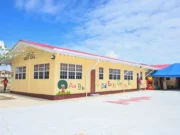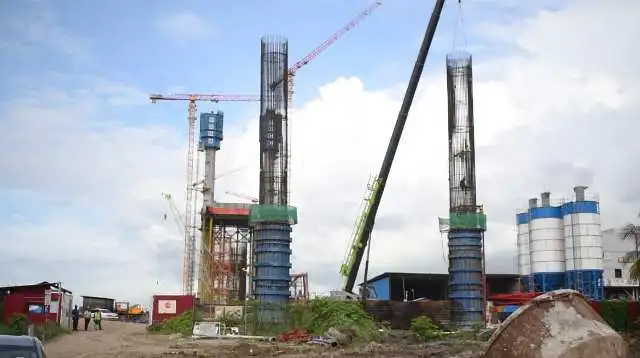- outlines vision for Guyana’s future
President Dr Mohamed Irfaan Ali has outlined a comprehensive vision for Guyana’s future, focusing on financial inclusion, economic strengthening, and investment in its people through improved services.
Speaking at the Albion Sport Complex on Sunday night to commemorate Guyana’s 59th Independence Anniversary, President Ali stated that Guyana is ‘no longer seeking development – it is realising its own progress.’ He underscored that real progress is evident from the hinterland, such as the Rupununi, to the Berbice coast.

“My fellow Guyanese, the oil beneath our seas may be the spark, but the energy is all the Guyanese people. From Lethem to Linden, from Anna Regina to Bartica, our One Guyana ambition means that every citizen will share fully and fairly in a nation’s wealth not by chance but – by deliberate policy,” the president expressed.
Infrastructure
This momentum will continue in the next five years (2025-2030) as the government continues to build blocks of transformation. This includes transforming public infrastructure to connect Guyana with its neighbours for improved trade, expanded markets, and to ‘remove constraints currently before us’
“We are investing in this infrastructure to improve connectivity between regions and communities across Guyana. We are upgrading community infrastructure to improve the quality of life and building household equity. These are the elements of infrastructure transformation that we are going to take forward,” President Ali detailed.
Investments in infrastructure will also aim to transform the quality of education, health, and housing, enhancing the quality of life for thousands nationwide.
In agriculture, the PPP/C Administration plans to make Guyana the ‘food capital of the Caribbean’ through modernised farming techniques, mega production systems, and training opportunities.
Beyond roads and bridges, significant focus will be placed on energy security to improve competitiveness and secure prosperity at national, community, and individual levels.
“We are going to leverage our energy surplus to create jobs at values or national richness and creating higher value goods and services. These are the aspects of our energy transformation that we are going to continue to invest in so that we can position Guyana as the energy hub of the energy.”
Security
President Ali said the government would continue to invest in systems to enhance border security through technology and human, maritime, aerial, and terrestrial assets. This would enable confidence and trust in the security architecture.
He added that this would be complemented by investments in men and women in uniform, providing more benefits, including improved living standards and access to training opportunities.
“That is what our policing must be, community led and more service oriented,” the president affirmed.
Financial reforms
President Ali highlighted that the government would embark on a financial transformation to improve access to financial systems and boost economic independence for all citizens.
This will be achieved by promoting financial inclusion, especially for vulnerable groups (children, women, elderly).
A National Development Fund will also be created to channel investments into communities, he noted.
In addition to this fund, the government will implement financial reforms such as tax cuts, easier access to financing, capital market and banking reforms, and digital payment systems to modernise business transactions.
“We will support, continue to support of our traditional sector, our rice farmers, sugar, gold, bauxite, diamond, women, quarrying, but in all of this, we want to see greater investment so that we can add more value to our natural asset.
We are going to continue investment to build out industrial parks, support manufacturing and energy-backed investment. We are going to create higher value goods and services and support small and medium-sized enterprises as part of the economic transformation.”
Climate resilience
A key aspect of this vision includes climate resilience and sustainability, which President Ali described as “key to the nation’s security.” Investments will therefore be made to expand sea and river defences and improve drainage and irrigation to support farming and open new agricultural lands. Smart climate-resilient infrastructure that can withstand shocks will also be constructed.
President Ali also said the Low Carbon Development Strategy (2030) would play a crucial role in positioning Guyana as a global leader in the fight against climate change. Additionally, the nation will be positioned as a global leader in biodiversity through the creation of a global centre of excellence for research and education in climate and biodiversity conservation.
President Ali emphasised that important to all of this human transformation is “high-quality moral religious and civic education.”
The head of state said, “none of this will be possible if we do not have the institutional transformation of our country. Reducing bureaucracy in accessing government services, a more vibrant, efficient and reliable, judiciary, improving transparency, raising productivity, improving our efficiency and competitiveness and having governance and regulatory framework that secure our nation, secure our resources, secure our finances.” (Department of Public Information)










